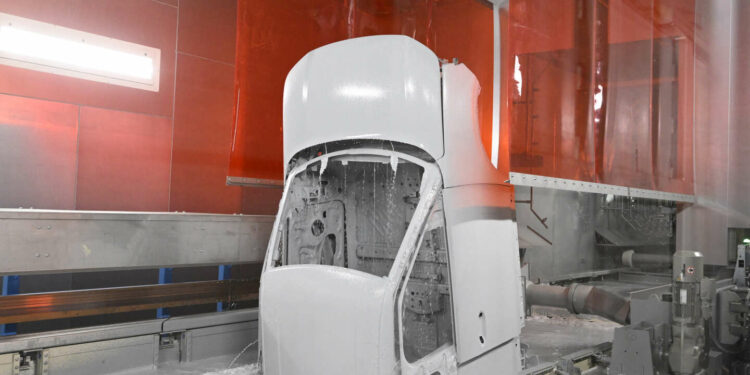The symbol is both striking and concerning: industrial production in Europe’s four largest economies is declining. According to data released by the public agency Eurostat on Friday, September 13, Germany, France, Italy and Spain all recorded a year-on-year drop in the production of capital goods and consumer durables. This trend extends beyond these key countries, impacting the entire continent.
Between July 2023 and July 2024, industrial production fell by 2.2% in the eurozone and by 1.7% in the European Union (EU). Over this period, however, the steepest falls recorded by Eurostat were in Hungary (-6.4%), Germany (-5.5%), Italy (-3.3%) and France (-2.3%). On the other hand, a smaller number of countries saw growth, such as Denmark (+19.8%), Greece (+10.8%) and Finland (+6.4%).
The downturn reflects the lack of competitiveness of European industry in the face of competition from the United States and Asia, whilst the former president of the European Central Bank Mario Draghi expressed concern in his report submitted to the European Commission on Monday, September 9, that the EU was “lagging behind” China and the US, and that the EU-27 were condemning themselves to “slow agony” if they did not react.
Read more Subscribers only Mario Draghi’s competitiveness report: EU condemned to ‘slow agony’ if no change
European manufacturers are suffering from sluggish domestic demand, a shortage of skilled labor and, above all, an energy crisis sparked by the war in Ukraine in February 2022, which ended access to cheap Russian gas. “The EU faces average energy prices that are almost twice as high as in the USA and China. This is a major structural handicap in terms of competitiveness and industrial productivity,” said Raphaël Trotignon, head of the energy-climate unit at the Rexecode economic institute.
East of the Rhine, the industrial downturn is affecting Central European countries such as Romania, the Czech Republic and Bulgaria, which are highly dependent on the German automotive industry. Meanwhile, France is falling further and further behind, with poor indicators in per capita growth, foreign trade and public finance deficits. The reindustrialization process that began several years ago has slowed sharply in recent months. A challenge for Prime Minister Michel Barnier’s new government and the arrival of new Finance Minister Antoine Armand and Junior Minister for Industry Marc Ferracci, appointed on Saturday, September 21.
Leverage from decarbonization
According to the employment and investment barometer published by research firm Trendeo on Monday, September 23, over 31,000 jobs were created in France in the first half of this year. A positive result, but down 31% from the first half of 2023. The same applies to the net balance of plant openings and closures, which was positive (+18) over the first six months of the year, but down 30% year-on-year.
You have 55.28% of this article left to read. The rest is for subscribers only.
Source link : http://www.bing.com/news/apiclick.aspx?ref=FexRss&aid=&tid=66f361377b454fa2a229fdb8a0b374d7&url=https%3A%2F%2Fwww.lemonde.fr%2Fen%2Feconomy%2Farticle%2F2024%2F09%2F23%2Fthe-great-breakdown-of-european-industry_6727000_19.html&c=15570613495501837134&mkt=de-de
Author :
Publish date : 2024-09-23 08:56:00
Copyright for syndicated content belongs to the linked Source.


